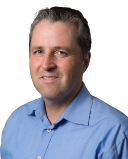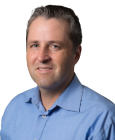Career
What I Learned From Meeting the Expert on Experts
A Personal Perspective: Insights on expertise, practice, and mastery.
Posted February 28, 2024 Reviewed by Abigail Fagan
Key points
- Hours of practice improves performance.
- Performance does not always go up in a straight line.
- Skills emerge from the combination and recombination of small parts to make a greater whole.

I was flying to Tallahassee on December 18, 2019, for a meeting when a thought crossed my mind. What if I write Anders and let him know I will be in town? I wrote him a short email asking nicely if we could at least have a cup of coffee. Much to my surprise, he agreed to meet me at 6:30 pm that evening for dinner in Tallahassee. It was a meeting that would inspire me to write my own book entitled, Mastery: How Learning Transforms Our Brains, Minds, and Bodies.
The Role of Practice in Expertise
Anders was K. Anders Ericsson, a professor of psychology at Florida State University. I had always wanted to find analogies between expertise in language and expertise in general. Thus, I spent a great deal of time reading Ericsson’s studies on experts across a wide range of fields, including music, chess, and sports.
His findings showed that more hours of focused practice, which he called deliberate practice, was key to becoming an expert. Later, Malcolm Gladwell in his book Outliers suggested that 10,000 hours were required for people to become experts. This 10,000-hour rule led Dan McLaughlin to develop “The Dan Plan.” This plan, developed in consultation with Ericsson, was designed for him to test how far practice could take him in his quest to be a certified golf pro. In just a few years, Dan was able to improve his performance on the golf course such that he was within the top 1% of players. Unfortunately, Dan was never able to push past 6,000 hours because of a back injury. Nevertheless, he was able to show how far practice could take people in their quest toward mastery. (The 10,000-hour rule has also been challenged by some.)
My own work with language suggested that practice was not the only thing that played a role in expertise. Rather than being built up piece by piece like a physical structure, skills had an emergent property. They bloomed like a flower that takes water, soil, and air temperature into account when growing. Expertise is the product of multiple small forces that coalesce into a greater whole. This idea had crystallized into a phrase, “The Emergence of Skill,” that had popped into my mind a few days before our meeting. I was curious about what Anders might think about my view on the emergent nature of skill learning.
Dinner With Anders
I landed in Tallahassee, went to my hotel to freshen up, and headed to the restaurant. As I entered, I recognized Anders immediately and introduced myself. We were seated rather quickly. As we exchanged a few pleasantries, the waiter approached us and asked, “How are you this evening?” We both responded, “Very well, thank you.” “Are you celebrating any special occasion,” he asked. “A birthday, a reunion,” he continued. Anders sat quietly. The importance of the occasion was not lost on me and somewhat spontaneously I blurted out, “Not a birthday or a regular special occasion. But I am getting to have dinner with one of my academic heroes,” I said. Anders was surprised at my candor, and I could see him a bit shocked that I would say it out loud so clearly. He quietly signaled that he was very happy to be there as well.
I started with general questions so as not to appear too adversarial. As the conversation flowed, I finally had the courage to float the notion of emergent skill that had been bothering me. So, I asked him:
What do you think of people who suggest that the highest level of expertise requires fewer hours not more? Does this mean that the link between hours of practice and skill level might go up along a straight line?
Anders noted that when he started his career, few datasets existed that linked hours of practice and expertise. To overcome this limitation, he spent some time looking for really good data that followed people across time. It just happened to be that music practice was a well-documented set of data, and thus he could establish a link between practice and expertise. His answer gave me an insight into a key component, data quality, that I had not paid as much attention to in reading his work.
I then considered the non-native accent literature. In particular, I mentioned that work has shown that accent in a foreign language appears to defy the brute number of hours of practice. Whereas early learning of a language tends to lead to a very faint accent for most, some individuals seem to defy this trend and have almost no accent. One of the interesting things about speaking with Ericsson was how faint his accent in English was. In fact, Ericsson differed tremendously from one of my tennis heroes, Bjorn Borg, who had a very strong Swedish accent in English. The presence of a non-native group of speakers with an imperceptible accent suggests that some experts need to train less than those who are a bit below them. This made me wonder if some people have more “potential” in any particular area.
He did not take my questions in an adversarial manner. He was clearly puzzled by the way I was framing things. Anders still wanted to learn, and he treated this opportunity as a chance to gain more knowledge. I wasn’t just meeting him; it was clear that Anders was meeting me too.
The First and Last Meeting With Anders Ericsson
We wrapped up with dessert, one of the best slices of key lime pie, split the check and I walked with him to wait for the valet. He offered me a ride and we parked for a few minutes in front of my hotel. I thanked him for having met with me and he was equally gracious. He then said that if I ever needed anything to contact him. At that moment, I hoped I could visit his lab and interact with him and his students. I said goodbye, closed the door, waved goodbye one last time, and watched as he drove off.
Over the next few days, I continued to think about our conversation. I realized that one thing that we did not touch on was the role of the brain in acquiring skills. Are brains just hardware? Do they just work to produce the neural signals that somehow turn into thoughts? How would Anders account for the biological bases of skill learning?
Our meeting left me with these questions that I hoped we could talk about in the future. Unfortunately, Anders passed away just a few months later in early 2020. Although Anders and I never got a chance to speak again, I continue to feel inspired by his work linking practice and expertise. By incorporating brain science, I hope to continue shedding light on our own unique journeys toward mastery.
References
Hernandez, A. E. (2024). Mastery: How Learning Transforms Our Brains, Minds, and Bodies. Prometheus Books.
McLaughlin, D. (2014). The first half of a journey in human potential: Halfway to the 10,000 hour goal, four years of a blog by Dan McLaughlin (the Dan Plan book 1). Retrieved from Amazon.com.




